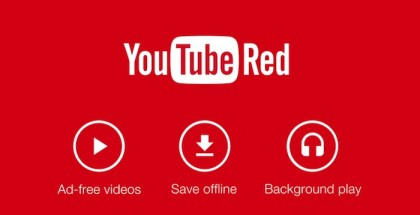Facebook, Microsoft, Twitter and YouTube team up to counter extremist content
David Farnor | On 28, Jun 2017
Facebook, Microsoft, Twitter and YouTube are teaming up to crack down on extremist content online.
The four internet giants have all faced controversy or calls for further action in the face of growing extremist content on their various platforms, as concerns rise about the radicalisation of young people through the web.
“The spread of terrorism and violent extremism is a pressing global problem and a critical challenge for us all,” the four companies said in a joint statement. “We take these issues very seriously, and each of our companies have developed policies and removal practices that enable us to take a hard line against terrorist or violent extremist content on our hosted consumer services.”
By forming the Global Internet Forum, they will work together to share the best technological and operational elements of their individual efforts. The forum builds on initiatives such as the EU Internet Forum and the Shared Industry Hash Database, discussions with the UK and other governments, and the conclusions of the recent G7 and European Council meetings. It will formalise and structure existing and future areas of collaboration between our companies and foster cooperation with smaller tech companies, civil society groups and academics, governments and supra-national bodies such as the EU and the U.N.
Initially, the forum will focus on working together to refine and improve existing joint technical work, such as the Shared Industry Hash Database, developing and implementing new content detection and classification techniques using machine learning, and defining standard transparency reporting methods for terrorist content removals. It will also commission research to inform counter-speech efforts and guide future technical and policy decisions around the removal of terrorist content. The forum will work with counter-terrorism experts including governments, civil society groups, academics and other companies to engage in shared learning about terrorism and through a joint partnership with the U.N. Security Council Counter-Terrorism Executive Directorate (UN CTED) and the ICT4Peace Initiative, it will establishing a broad knowledge-sharing network to engage with smaller companies.
“Each of us already has robust counterspeech initiatives in place (e.g., YouTube’s Creators for Change, Jigsaw’s Redirect Method, Facebook’s P2P and OCCI, Microsoft’s partnership with the Institute for Strategic Dialogue for counter-narratives on Bing, Twitter’s global NGO training program),” add the four copmanies. “The forum we have established allows us to learn from and contribute to one another’s counterspeech efforts, and discuss how to further empower and train civil society organizations and individuals who may be engaged in similar work and support ongoing efforts such as the Civil society empowerment project (CSEP).”




















